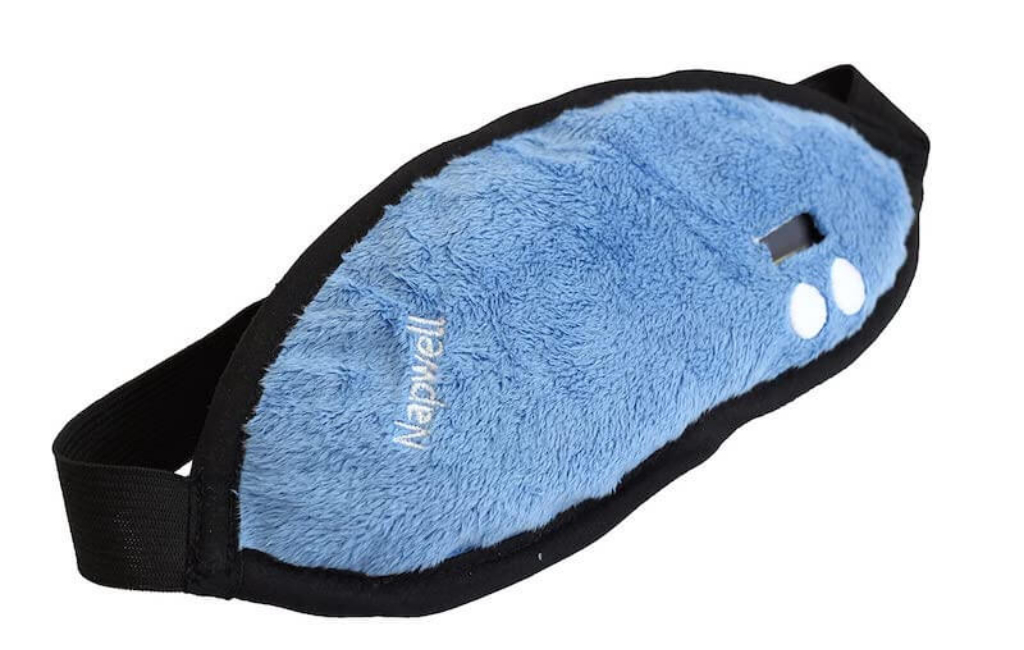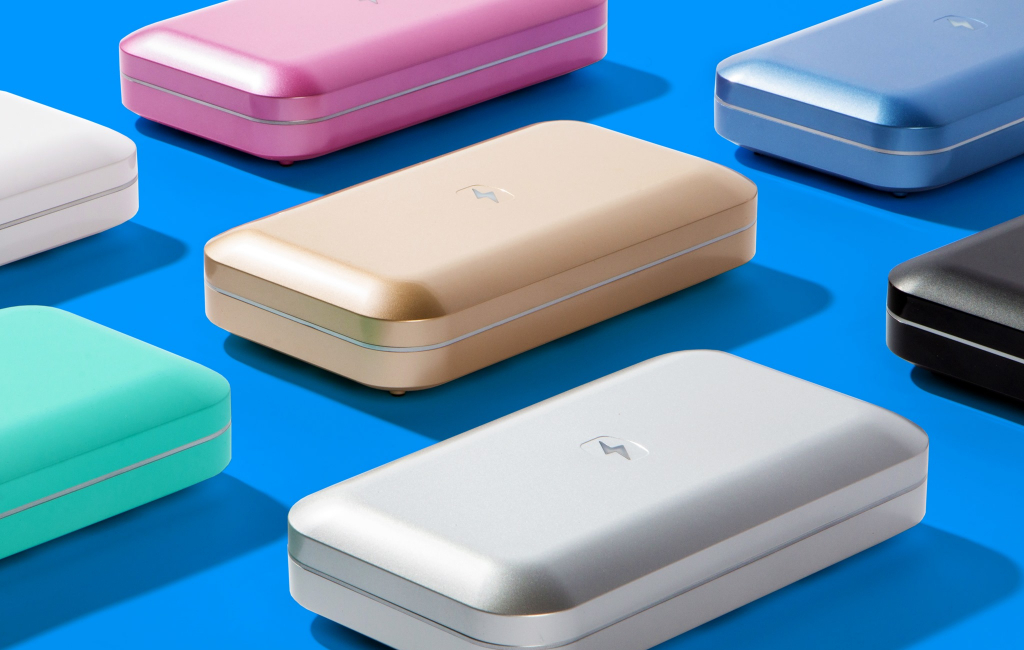Greenbox Eco-friendly Pizza Box
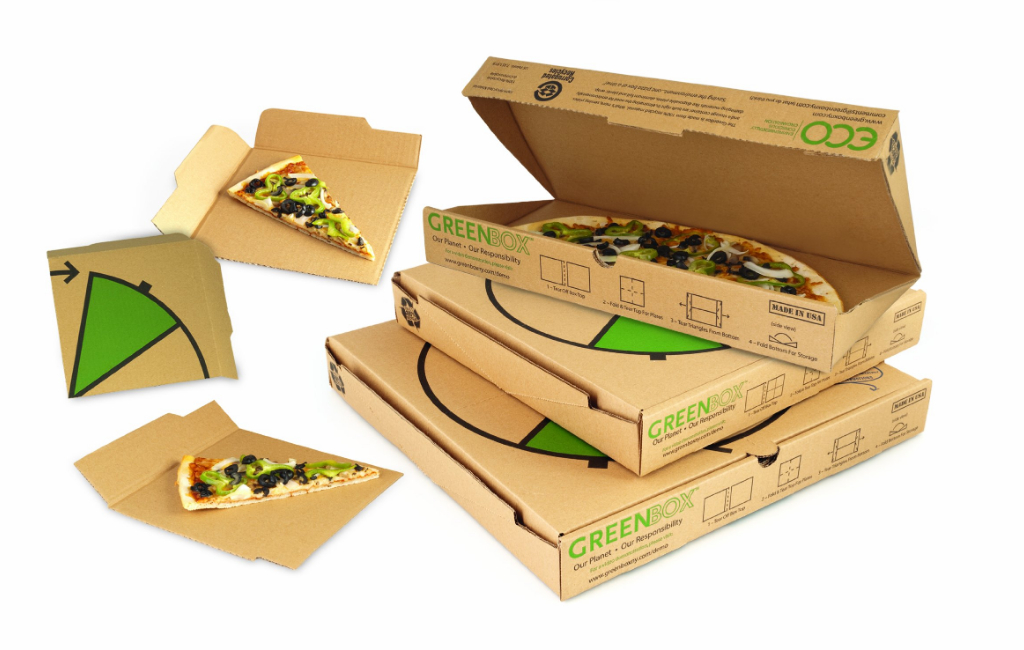

DEAL
EPISODE SUMMARY
🕓 Air Date: January 30, 2015
Asking For:
$300,000 for 10%
Investor:
Kevin O'Leary
Deal:
$300,000 for 10%
PRODUCT SUMMARY
GreenBox offers an eco-friendly pizza box made from 100% recycled material. The box's top tears off into four sturdy plates, eliminating the need for additional disposable plates.
WATCH HERE
IN A RUSH?
Click these to jump to the section you want to read.
Background Story
GreenBox, the brainchild of founders Jen and Ned, has its roots in addressing the practical challenges posed by traditional pizza boxes. The founders present a unique and eco-friendly solution to the age-old problem of unwieldy pizza boxes. Jen and Ned, who introduced themselves with a mix of nervousness and humor on the Shark Tank stage, embarked on this venture driven by their shared passion for creating a more sustainable and user-friendly alternative for pizza lovers.
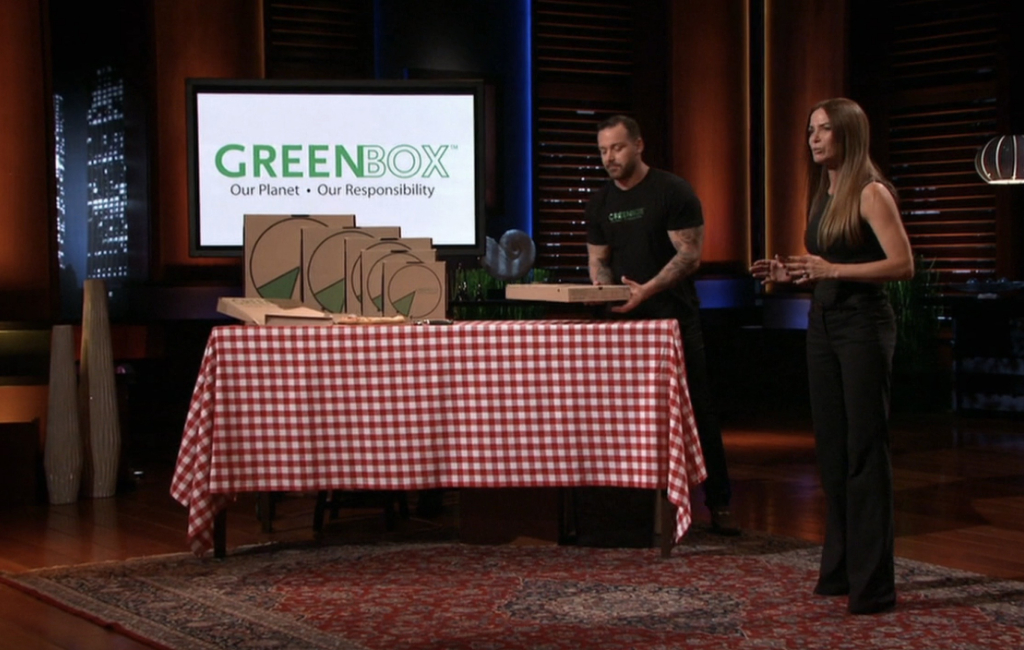
The pitch reflects their genuine excitement and belief in their product, showcasing their dedication to revolutionizing a ubiquitous item in many households. The founders highlight their background experience during the pitch, indicating that their business model involves selling to distributors nationwide. They’ve successfully established relationships with major players, with Whole Foods being noted as their largest customer.
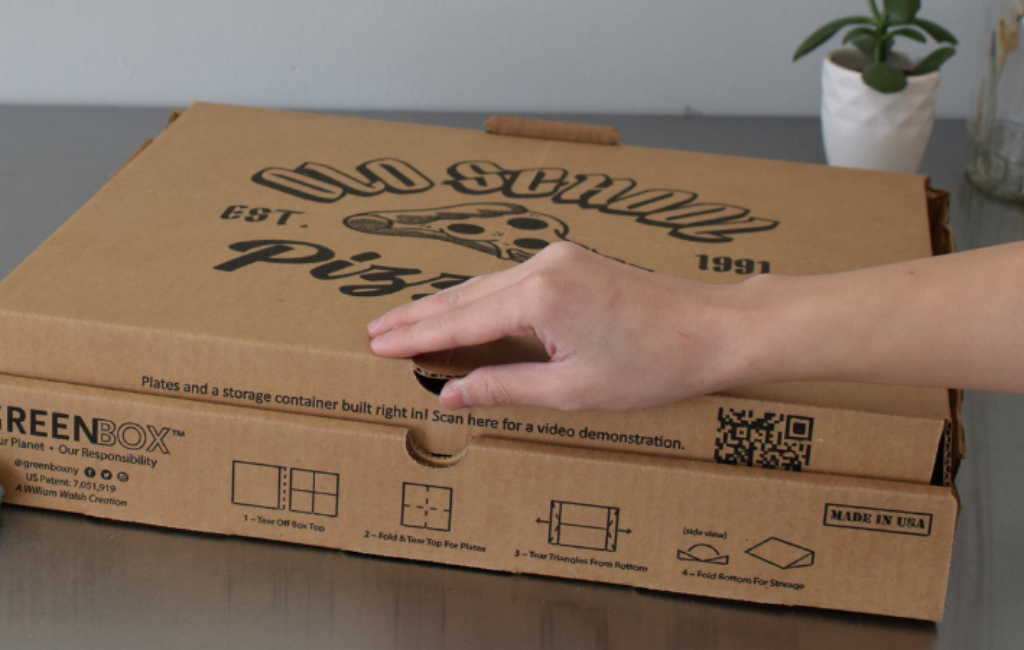
The dual strategy adopted by the founders involves proving the concept’s viability and moving towards a licensing model. The inspiration for GreenBox came from recognizing the widespread inconvenience posed by traditional pizza boxes. Jen and Ned’s approach is not just about providing an innovative product but also emphasizing the environmental aspect by using 100% recycled materials. Their humor-infused presentation style on Shark Tank offers a glimpse into the personalities behind the product, creating a relatable narrative that resonates with viewers and potential investors alike.

The Product
GreenBox, the innovative pizza box presented on Shark Tank, offers a transformative solution to the conventional pizza box problem. Made entirely from 100% recycled materials, the GreenBox stands out for its dual functionality and eco-friendliness. The top of the GreenBox ingeniously tears off into four sturdy plates, eliminating the need for additional disposable plates.
This not only simplifies the serving process but also reduces waste associated with traditional pizza consumption. The bottom of the box folds into a handy storage container, providing a convenient solution for storing leftovers without the need for additional materials like aluminum foil or plastic wrap. The compact storage design ensures it neatly fits in the fridge.
This eco-friendly pizza box is not only practical but also aligns with sustainable living practices. The product’s benefits extend beyond its functionality, contributing to a reduction in single-use plastics and promoting a greener lifestyle. The founders mentioned their distribution strategy involves selling to distributors nationwide.
Additionally, the founders emphasized their successful licensing model, indicating that major companies like Whole Foods have embraced the GreenBox concept. The product’s versatility and environmentally conscious design position it as a standout choice for those looking to enjoy pizza with added convenience and reduced environmental impact.
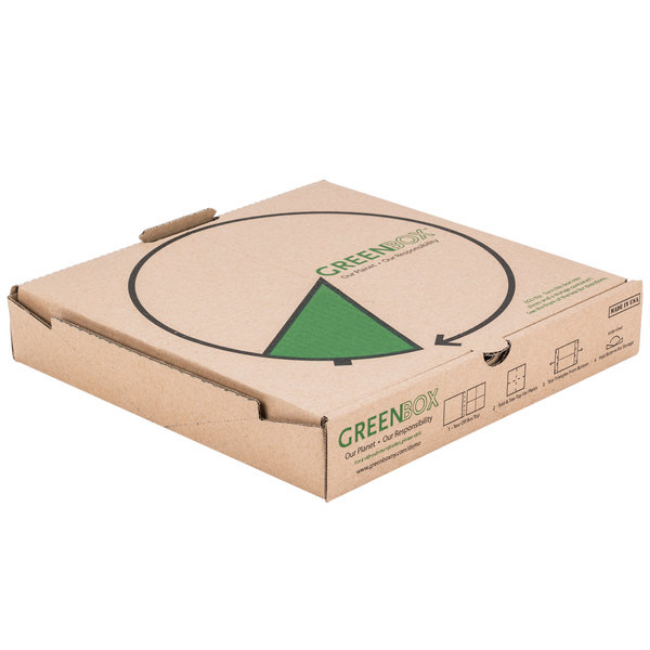
How It Went
The company’s position before Shark Tank
GreenBox demonstrates a robust and promising performance, positioning itself as a pioneer in sustainable packaging solutions for the food industry. The company has successfully established a national presence, distributing its eco-friendly pizza boxes through a network of wholesalers. Notably, Whole Foods stands out as their largest customer, indicating a strong foothold in the market and an alignment with environmentally conscious retailers.
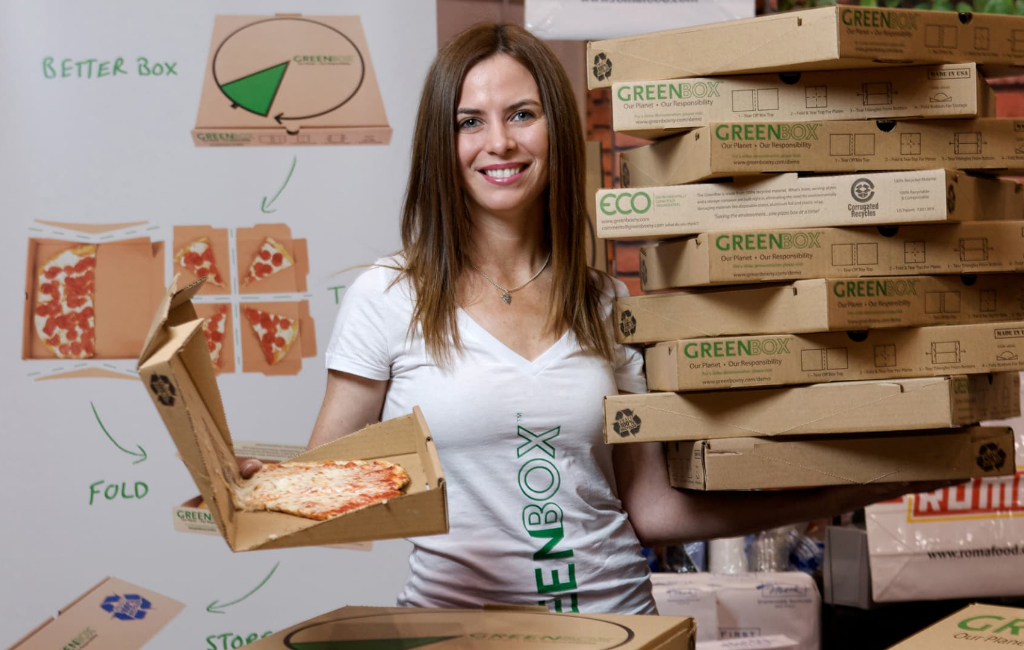
In terms of funding, the founders mentioned a dual strategy from day one, which involved proving the concept and subsequently moving towards a licensing model. This strategic approach has proven successful, with over 10 million direct sales and licensing deals. The founders disclosed a notable sales figure of $1.7 million in the previous year, reflecting both the market demand for their product and the viability of their business model. GreenBox’s financial health is further strengthened by their possession of a full utility patent, offering protection and exclusivity for their innovative pizza box design.
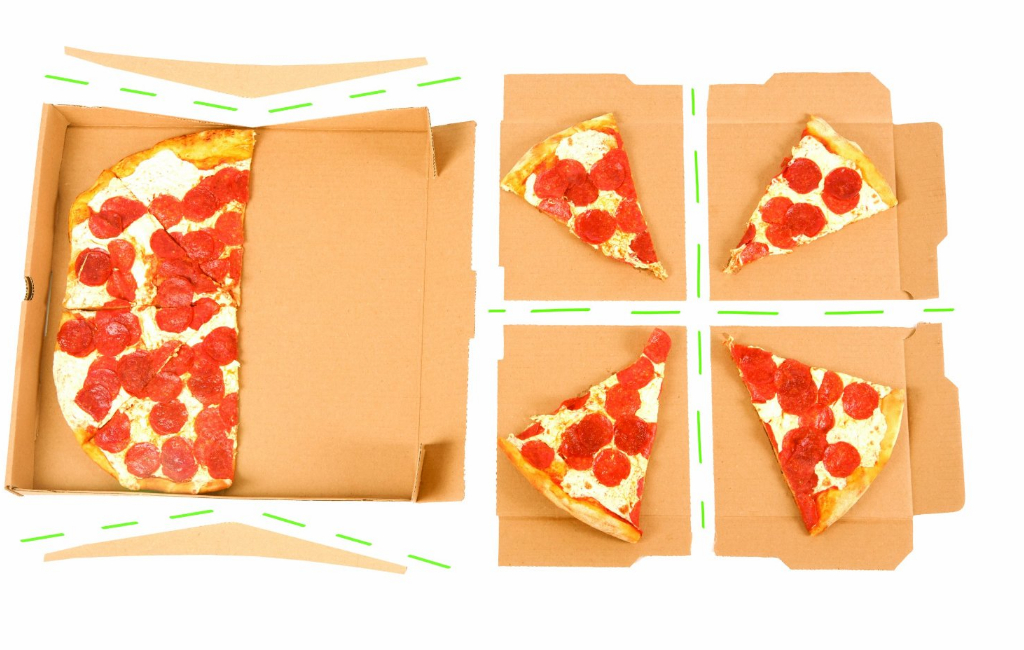
The patent serves as a valuable asset, safeguarding the company’s intellectual property and reinforcing its competitive advantage in the market. GreenBox’s strategic partnerships with distributors and licensing agreements position the company for continued growth, fostering confidence among investors like the Sharks on Shark Tank. The founders’ emphasis on achieving phase one of their strategy and their presence in major retail outlets underscore GreenBox’s current strong position and potential for sustained success in the eco-friendly packaging sector.
The Negotiations:
The negotiations for GreenBox on Shark Tank were dynamic and featured offers from multiple Sharks, each bringing their unique terms and conditions to the table. Jen and Ned entered the Tank seeking a $300,000 investment in exchange for a 10% equity stake in their eco-friendly pizza box company. Kevin O’Leary was the first to extend an offer, presenting a $300,000 loan for a 10% equity stake. However, his offer came with a significant contingency – it was contingent on GreenBox securing a deal with a major pizza company.
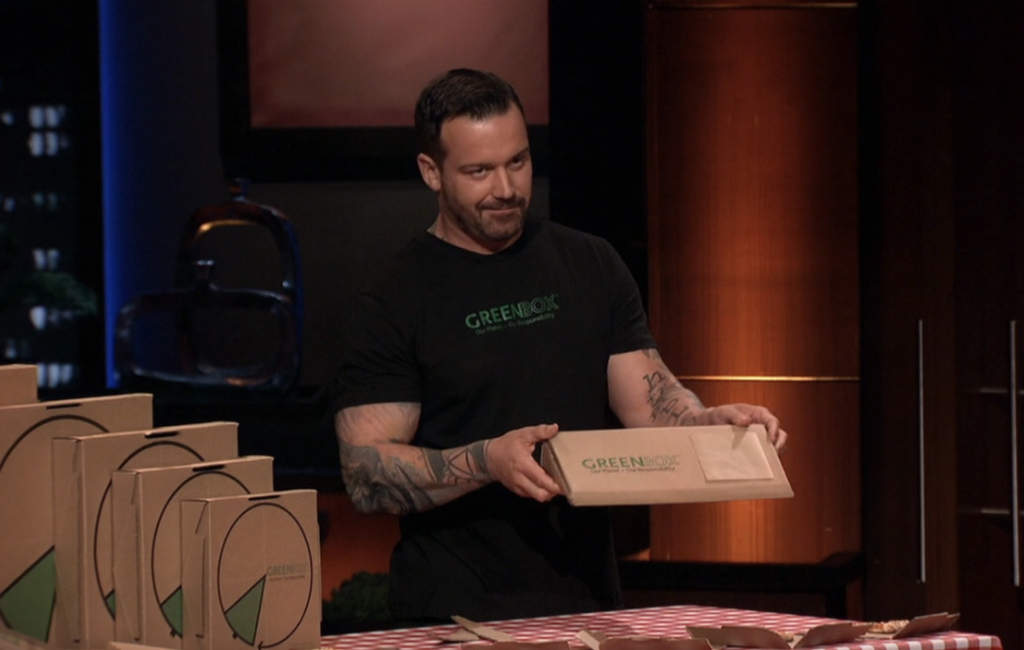
This condition added an extra layer of risk to the deal. Following O’Leary’s offer, Robert Herjavec and Lori Greiner jointly presented a counteroffer. They proposed a $300,000 investment for a larger 30% equity stake, also contingent on securing a deal with a major pizza company. Their rationale was based on their belief that to scale up, GreenBox needed to partner with a large pizza company, and their offer reflected their commitment to facilitating that. Despite the higher equity stake, Jen and Ned chose to accept Kevin O’Leary’s offer.
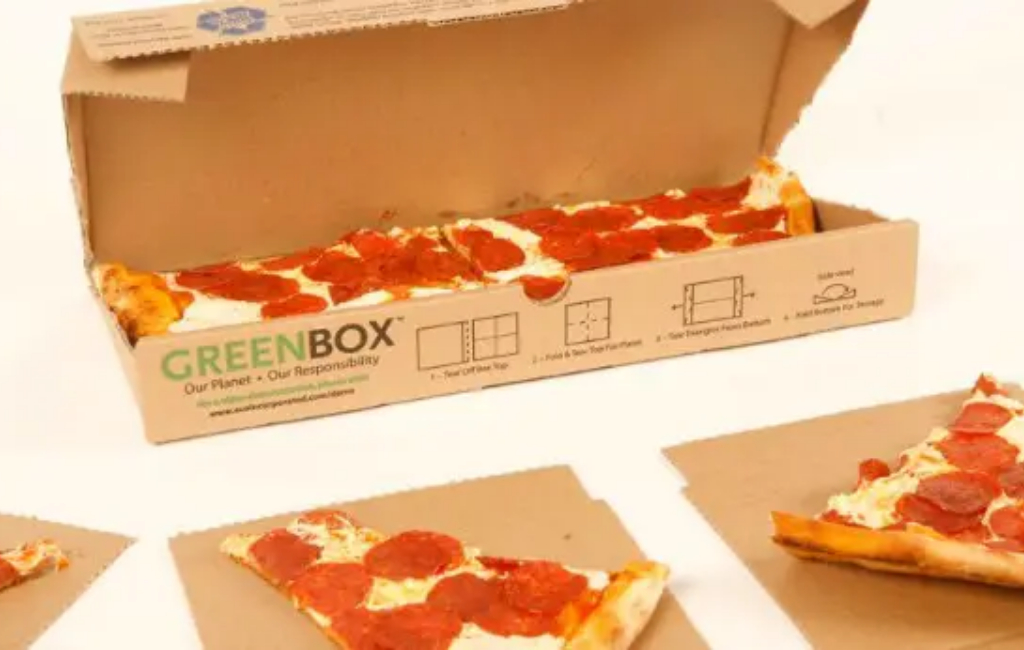
The founders expressed confidence in their product’s potential for growth and seemed swayed by O’Leary’s commitment to making calls and facilitating meetings with major pizza companies. This decision showcased a balance between securing funding and maintaining a reasonable equity share in their company. In the end, the negotiation highlighted the importance of securing a deal with a major player in the pizza industry for GreenBox’s success, and Kevin O’Leary’s offer aligned with this crucial condition, ultimately leading to a deal.






